Gilas Remains Work in Progress
Gilas Pilipinas may have started the FIBA World Cup qualifiers with a win, but if their performance against Japan is any indication, then this iteration of Gilas might be in big trouble.
In a case of taking half a step forward and several steps back, the nationals struggled to put away a young but game Japanese squad, ultimately needing the brilliance of Jayson Castro and timely baskets from Andray Blatche, Matthew Wright, and RR Pogoy to outlast their counterparts from the Land of the Rising Sun.
Gilas had built a double-digit advantage in the first half, only to give it all away at the start of the third canto when the team’s forever flaws were most apparent: inconsistent shooting, an overreliance on hero ball, sloppy execution, and long stretches of lackluster, sometimes apathetic defense.
Ultimately, the difference in talent between the two teams decided the game, with Castro and Blatche taking turns puncturing Japan’s defense. In other words, Gilas had more than enough talent to overcome their flaws.
That wealth of talent will likely be enough, too, when the two teams meet again in February 2018, and when Gilas faces off against Chinese-Tapei on Monday, November 27 and on again June 2018.
But that talent difference against opposing teams will dissipate once Gilas plays against the region’s powerhouse teams, notably Australia, China, South Korea, New Zealand, Iran, and even Lebanon and Jordan. Even that vaunted puso, increasingly becoming more gimmick than attitude, might not suffice if the nationals don’t address those aforementioned flaws.
Gilas, going forward, needs to play better defense, both indivdually and as a team. Everyone must do a better job staying in front of his man, and the rotations must be quick, disciplined, and decisive. Players need to have each other’s backs, with help defense coming st the right time from the right player at the right spot. The Japanese got more than their fair share of open looks, and one can only imagine the amount of good shots that an elite team like Australia (looming in the horizon already) or South Korea (somewhere down the road, most likely) will get dissecting the same type of porous defense that the nationals played last night.
Gilas needs to do better on offense, too, and that means executing well, with more ball and player movement and less standing around watching Player X or Y play hero ball. Yes, Castro and Blatche are good enough to go one-on-one against anyone in the region; however, elite defenses will figure them out sooner rather than later and keep them from doing much damage. That high pick-and-roll is dynamite, especially in the pro league, but going to it over and over and over might not exactly be sustainable against the best teams in Asia and the Oceania.
The nationals need to hone their shooting strokes as well, as teams will likely zone Gilas into submission. Wright, Pogoy, Allein Maliksi, Kiefer Ravena, Troy Rosario, and Kevin Alas will all get decent to good looks from outside, and they will have to make more than a few to keep defenses honest and open up alleys for Castro, Blatche, Calvin Abueva, and Japeth Aguilar.
Talent is not the question for this version of Gilas, as this team is talent-laden; neither is desire, as the players surely want to win. Preparation, though, or the obvious lack of it, is the elephant in the room. In today’s international game, preparation is now as vital as talent, and the better prepared teams are generally the best in their respective regions. This national team, however, is woefully underprepared, with Castro and company getting together barely a month before their first game. Preparation, of course, affords a team continuity, which in turn breeds familiarity that leads to the kind of move-like-a-string chemistry elite teams have. These players, unfortunately, have been together for less than a month, and that is too short of a time for any team, let alone a national team, to learn how to play together and master a system.
This national team needs time and plenty of opportunities to play together so they can address their flaws. But the battles have begun already, and Gilas for the mean time will have to rely more than ever on individual talent and hopefully, copious amounts of genuine all-fight, no-quit puso—not the gimmicky, made-for-TV version only.
 Written by Martin Dale D. Bolima.
Written by Martin Dale D. Bolima.
Martin is a copy editor for the University Press of First Asia. He is an avid sports fan. He used to keep a sports blog at http://pinoysportsnet.blogspot.com/.
Photos from fiba.basketball
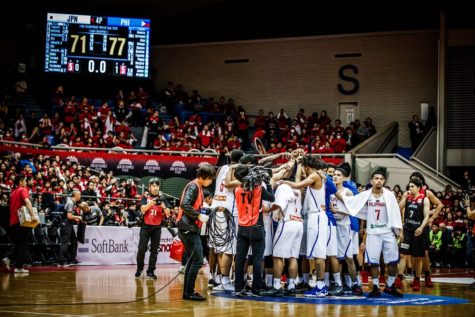
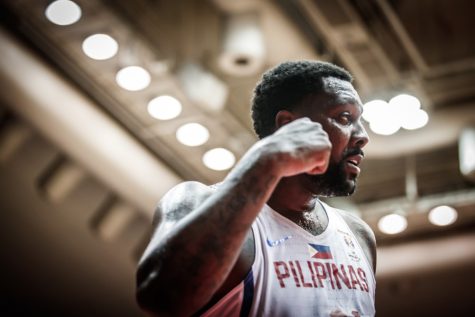

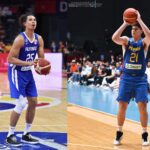
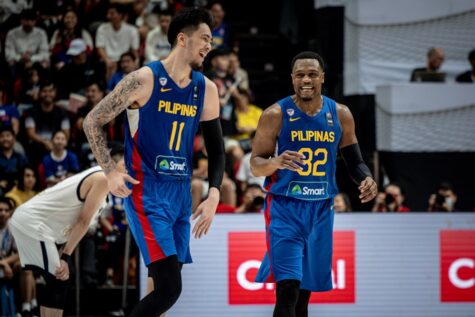
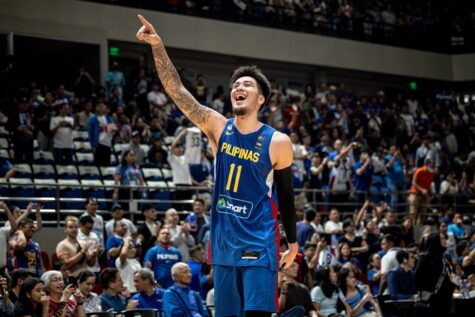
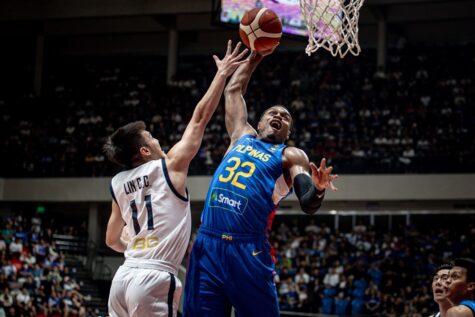
Leave a Reply